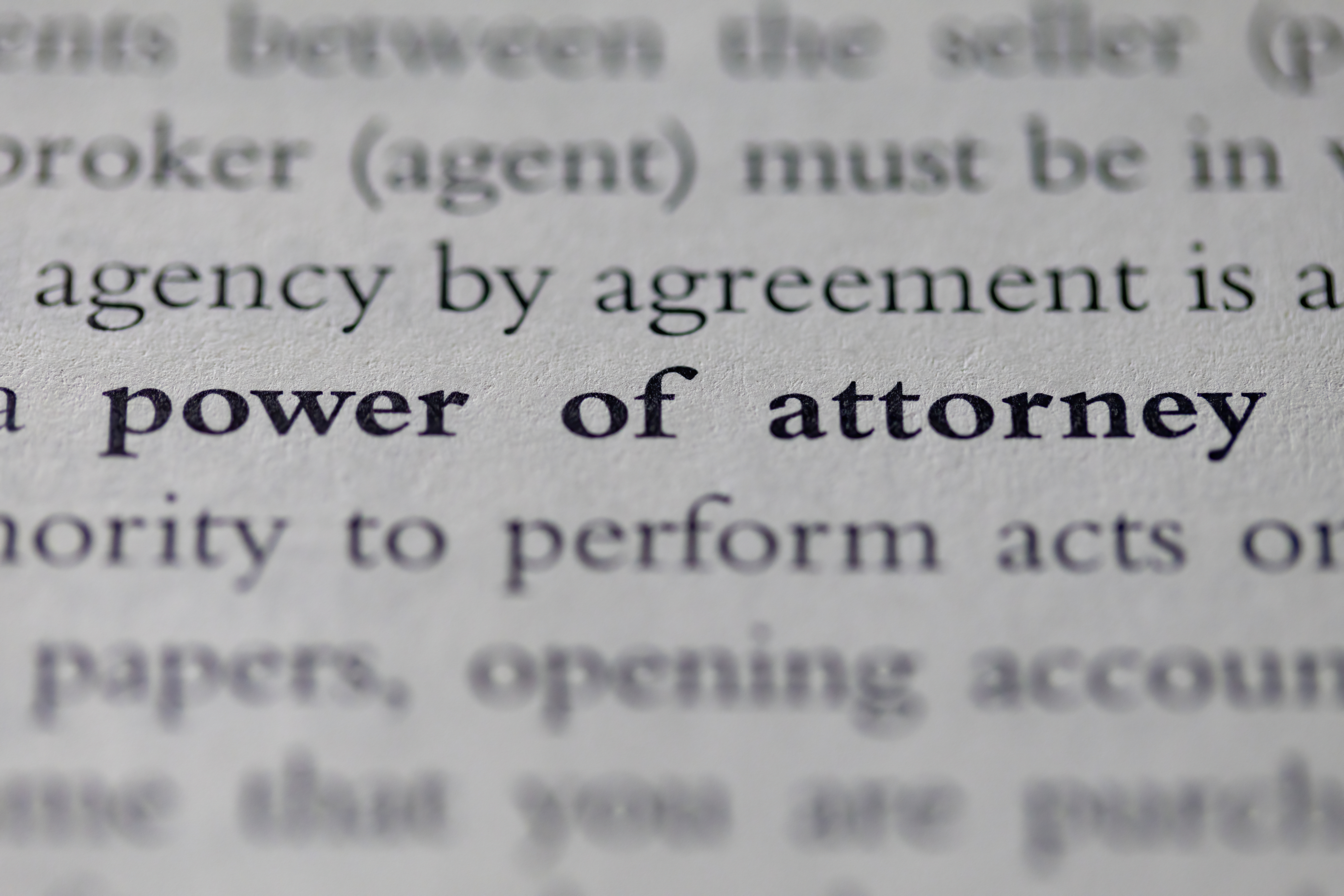A Power of Attorney is a legal document that lets you appoint or more people to act on your behalf. This gives you more control if you lose the mental or physical capacity to act for yourself.
There could be several reasons why you might need this. You might need it for a temporary situation, for example if you are in hospital and need help with everyday tasks such as paying bills, or you are on a long holiday and want someone to deal with your affairs while you are away.
Often, people will use a Power of Attorney to make longer-term plans. This can often be to cover long term mental or physical health issues, such as you have been diagnosed with dementia and you may lose the mental capacity to make your own decisions in the future.
What is mental capacity?
Every day we make decisions and our ability to make these decisions is called mental capacity. Some people have difficulty making these decisions. This could be because they have:
- A learning disability
- Dementia
- A mental health issue
- A brain injury or a stroke
The Mental Health Capacity Act for England and Wales will affect people and their families, carers, health and social care staff and anyone who has contact with them, in these situations. The Act covers all sorts of major decisions such as care and medical treatment, financial matters and everyday decisions like what to eat and wear.
Needing more time to understand or communicate does not mean you lack mental capacity. Where someone is having difficulty communicating a decision, an attempt should always be made to overcome those difficulties. You can find out more about this at gov.uk/make-decisions-for-someone.
Types of Power of Attorney
There are different types of Power of Attorney and you can set up more than one.
Ordinary Power of Attorney (OPA)
This covers decisions about your financial affairs and is valid while you have mental capacity. It is suitable if you need cover for a temporary period (hospital stay or holiday) or if you find it hard to get out and about, or you want someone to act for you. We do not accept instructions under an OPA as the person remains capable of giving instructions – but see the ‘special circumstances’ section.
Lasting Power of Attorney (LPA)
This covers decisions about your financial affairs, or your health and care. It comes into effect if you lose mental capacity, or if you no longer want to make decisions for yourself. You would set up an LPA if you want to make sure you're covered in the future. You must register this with the Office of the Public Guardian before using it. An unregistered LPA will not give any legal powers to make decisions. You can register it while you have mental capacity. As it has no effect until it is registered, we cannot accept an unregistered LPA. If you lose the ability to deal with your bank account and pensions, and make decisions about your healthcare, your husband, wife or civil partner cannot make decisions for you without an LPA.
Enduring Power of Attorney (EPA)
EPAs were replaced by LPAs in October 2007. However, if you made and signed an EPA before 1 October 2007, it should still be valid. An EPA covers decisions about your property and financial affairs, and it comes into effect if you lose mental capacity, or if you want someone to act on your behalf. We only accept registered EPAs. We cannot accept an unregistered solicitor’s copy.
Set up a Lasting Power of Attorney
You can do this online at lastingpowerofattorney.service.gov.uk. You will need to register the LPA before you can use it, but this costs. You may be exempt from paying the fee if you're on a low income or you receive certain income-related benefits.
Do I need a solicitor?
You do not have to use a solicitor to create an LPA. The application contains guidance to help you fill them out. If you want to use a solicitor, you'll need to pay them to complete the form for you. Fees for creating an LPA vary, so you might want to contact a few to compare their fees and the service they offer.
Choosing an attorney
The role of your attorney involves a great deal of power and responsibility. It is a good idea to give the person you ask time to think about the role, to make sure they feel comfortable doing it. Your attorney could be a family member, a friend, your spouse, partner or civil partner. It could also be a professional, such as a solicitor. It can be a good idea to appoint more than one attorney, known as joint attorneys – but you must decide if they are to make decisions:
- jointly – meaning they work together on all matters, or
- jointly and severally – where they may act together or separately, as they choose.
You may want to specify that attorneys must act jointly for specific decisions, such as selling a house, or jointly for all other decisions. Your attorney can claim back any expenses they incur as part of the role – such as postage, travel costs or photocopying. They can claim these from your money, keeping an account of any expenses and relevant receipts. However, they cannot claim for time spent carrying out their duties unless they are a professional attorney, such as a solicitor, who will charge fees.




